Recombinant Human CD164 protein(Met1-Asp162), His-tagged
| Cat.No. : | CD164-3966H |
| Product Overview : | Recombinant Human CD164 (Q04900-1) extracellular domain (Met 1-Asp 162) was expressed in HEK293, fused with a polyhistidine tag at the C-terminus. |
| Availability | April 26, 2025 |
| Unit | |
| Price | |
| Qty |
- Specification
- Gene Information
- Related Products
- Case Study
- Application
- Download
| Species : | Human |
| Source : | HEK293 |
| Tag : | His |
| Protein Length : | Met1-Asp162 |
| Form : | Lyophilized from sterile PBS, pH 7.4. Normally 5 % - 8 % trehalose, mannitol and 0.01% Tween80 are added as protectants before lyophilization. |
| Molecular Mass : | The recombinant human CD164 consists of 150 amino acids and has a predicted molecular mass of 15.9 kDa. As a result of different glycosylation, the apparent molecular mass of rhCD164 is approximately 40-110 kDa in SDS-PAGE under reducing conditions. |
| Endotoxin : | < 1.0 EU per μg of the protein as determined by the LAL method. |
| Purity : | > 95 % as determined by SDS-PAGE |
| Storage : | Samples are stable for up to twelve months from date of receipt at -20°C to -80°C. Store it under sterile conditions at -20°C to -80°C. It is recommended that the protein be aliquoted for optimal storage. Avoid repeated freeze-thaw cycles. |
| Reconstitution : | It is recommended that sterile water be added to the vial to prepare a stock solution of 0.2 ug/ul. Centrifuge the vial at 4°C before opening to recover the entire contents. |
| Gene Name | CD164 CD164 molecule, sialomucin [ Homo sapiens ] |
| Official Symbol | CD164 |
| Synonyms | CD164; CD164 molecule, sialomucin; CD164 antigen, sialomucin; sialomucin core protein 24; MGC 24; MUC 24; MGC-24v; multi-glycosylated core protein 24; MGC-24; MUC-24; endolyn; |
| Gene ID | 8763 |
| mRNA Refseq | NM_001142401 |
| Protein Refseq | NP_001135873 |
| MIM | 603356 |
| UniProt ID | Q04900 |
| ◆ Recombinant Proteins | ||
| CD164-2078HFL | Recombinant Full Length Human CD164 Protein, C-Flag-tagged | +Inquiry |
| CD164-1591R | Recombinant Rhesus Monkey CD164 Protein, hIgG1-tagged | +Inquiry |
| CD164-2988HF | Recombinant Full Length Human CD164 Protein, GST-tagged | +Inquiry |
| CD164-5239H | Recombinant Human CD164 Protein (Met1-Asp162), C-His tagged | +Inquiry |
| CD164-3044H | Recombinant Human CD164 Protein, MYC/DDK-tagged | +Inquiry |
| ◆ Cell & Tissue Lysates | ||
| CD164-1932HCL | Recombinant Human CD164 cell lysate | +Inquiry |
| CD164-1257RCL | Recombinant Rat CD164 cell lysate | +Inquiry |
Case 1: Zhang XG, et al. Cancer Med. 2018
This study explored CD164 in bladder cancer, finding it linked to worse outcomes like metastasis. Using immunohistochemistry and other methods, researchers showed that silencing CD164 reduced tumor growth and spread by influencing key proteins. CD164 also often pairs with CXCR4 in tumors, making it a potential target for bladder cancer treatment.
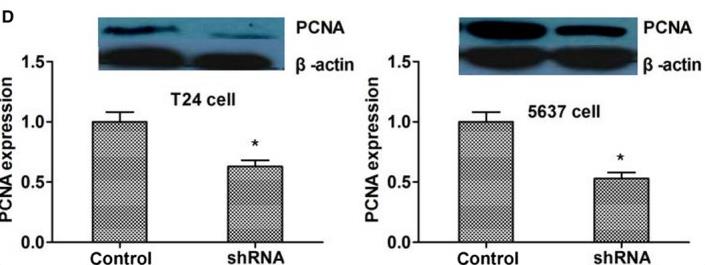
Fig1. The expression of proliferation related proteins PCNA was down-regulated by silencing of CD164.
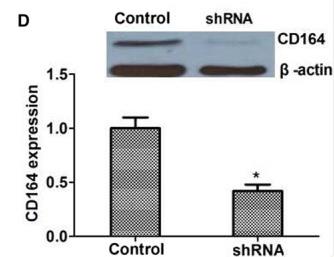
Fig2. The expression of CD164 in mice tumors was dramatically decreased by Western blot.
Case 2: Zhang XW, et al. Oncol Rep. 2020
Colon cancer is a leading cause of cancer deaths. This research highlights that the lncRNA RP11-619L19.2 is highly expressed in colon cancer, linked to advanced stages and metastasis. Silencing it reduces tumor growth, migration, and EMT, by interacting with miR-1271-5p and CD164. This mechanism of RP11-619L19.2 offers new potential targets for colon cancer treatment.
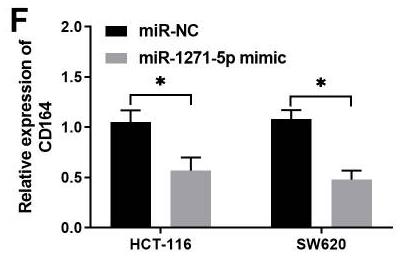
Fig1. The relative expression of CD164 in HCT-116 or SW620 cells transfected with miR-1271-5p mimics or miR-NC was evaluated by RT-qPCR analysis.
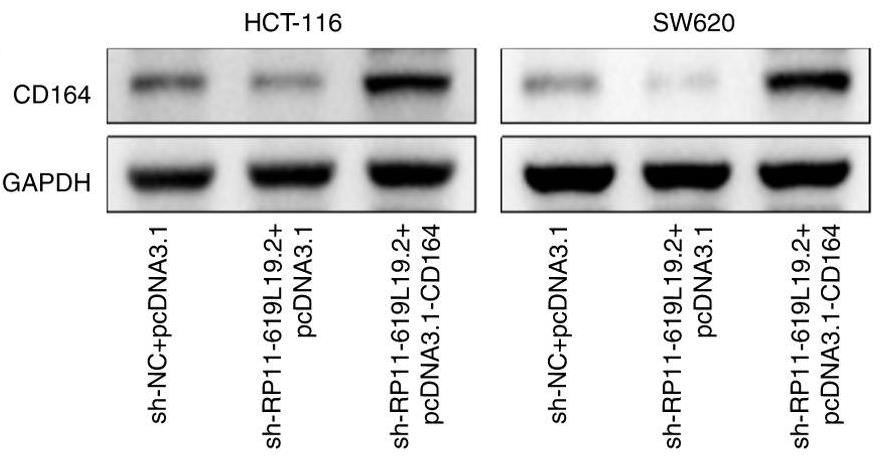
Fig2. The relative expression levels of CD164 protein were evaluated by western blot analyses.
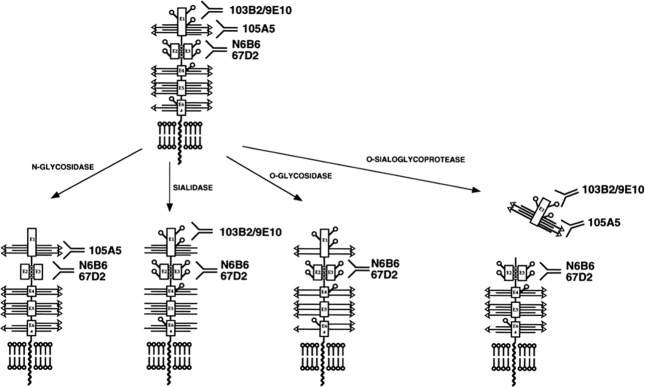
Fig1. Defining hCD164 epitopes by glycosidase treatments. (Suzanne M Watt, 2021)
Not For Human Consumption!
Inquiry
- Reviews
- Q&As
Ask a Question for All CD164 Products
Required fields are marked with *
My Review for All CD164 Products
Required fields are marked with *
Inquiry Basket


